NSYSU ties strategic alliance with Penghu County Mayor Feng-Wei Lai to cultivate and retain medical professionals in outer islands
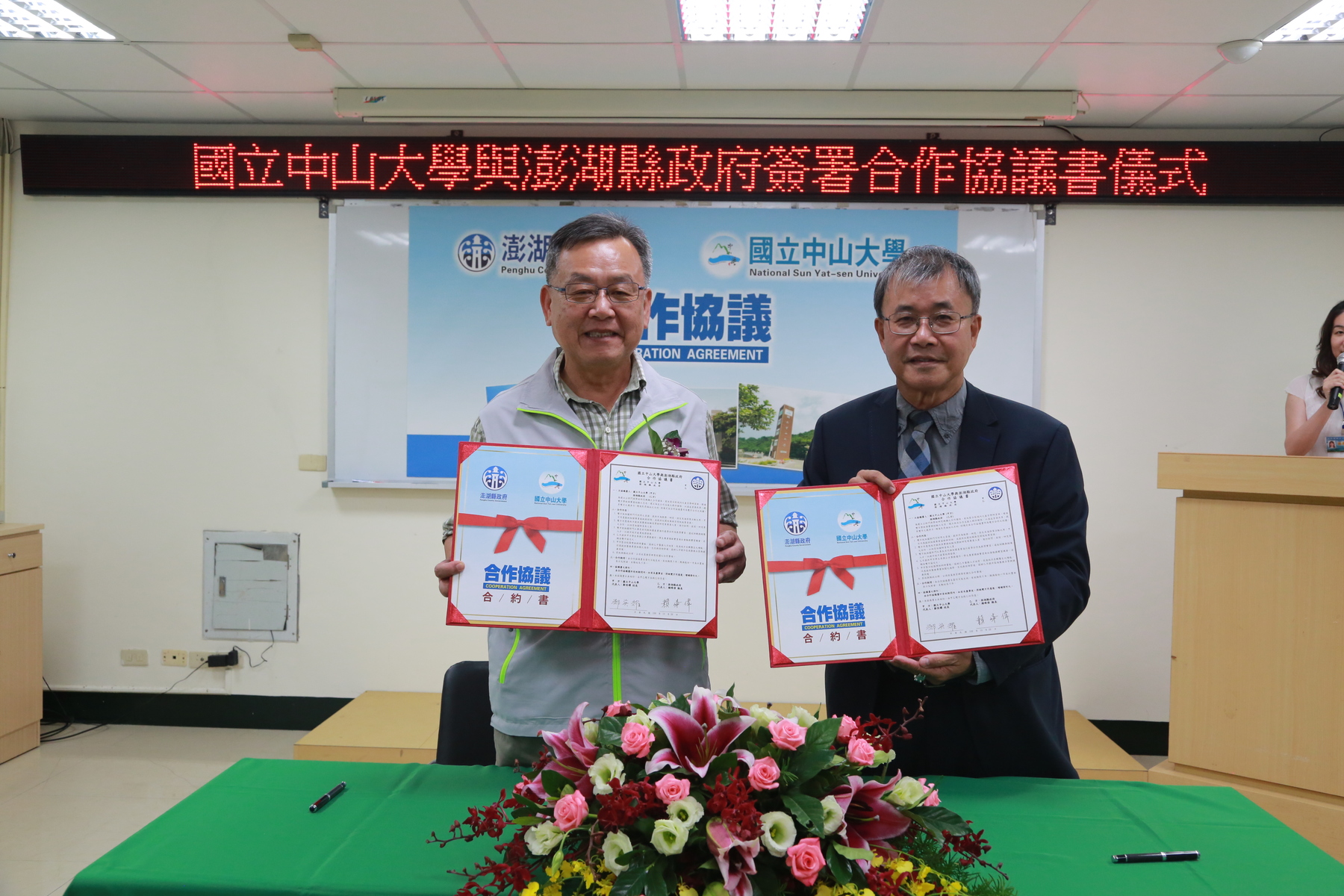
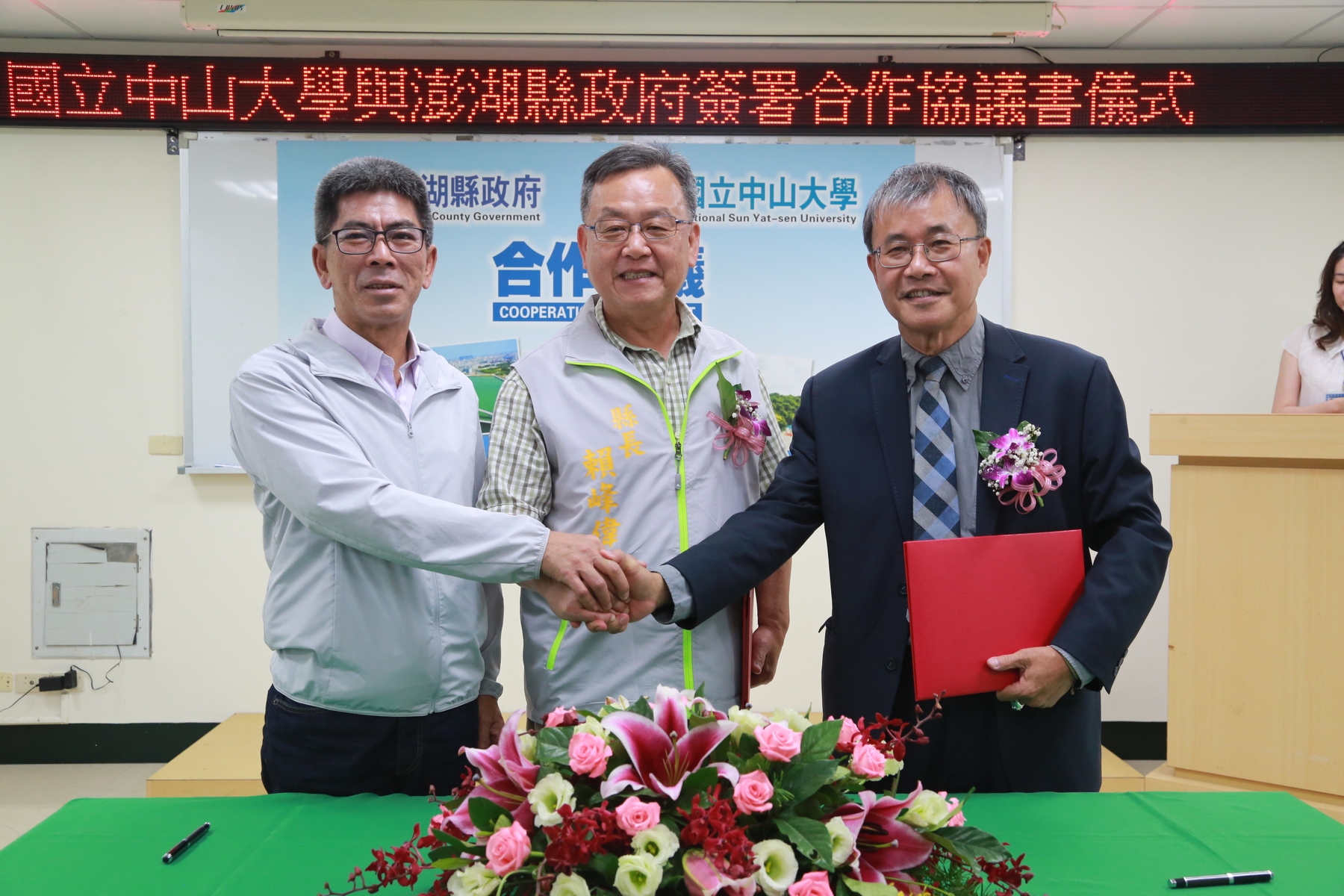
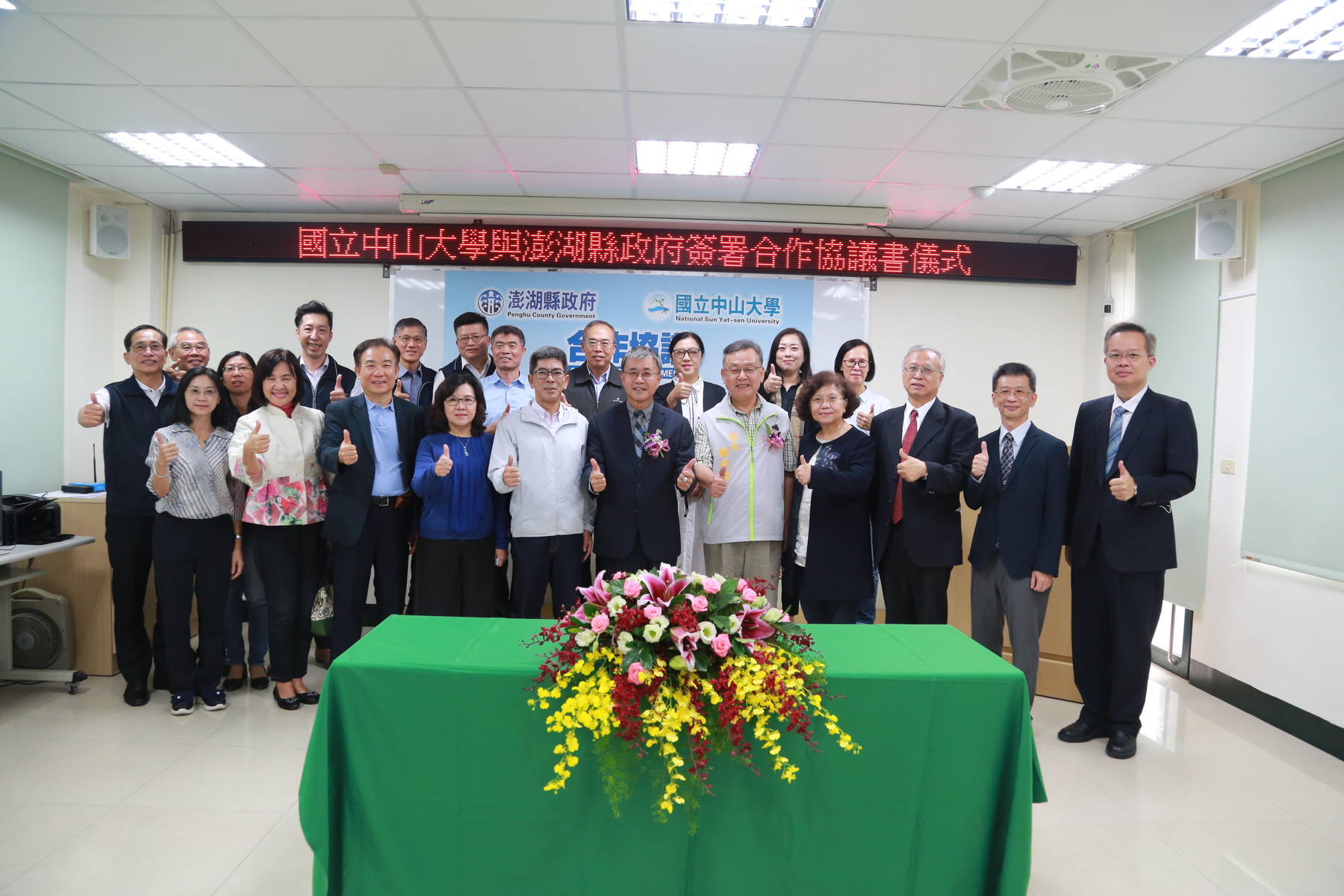
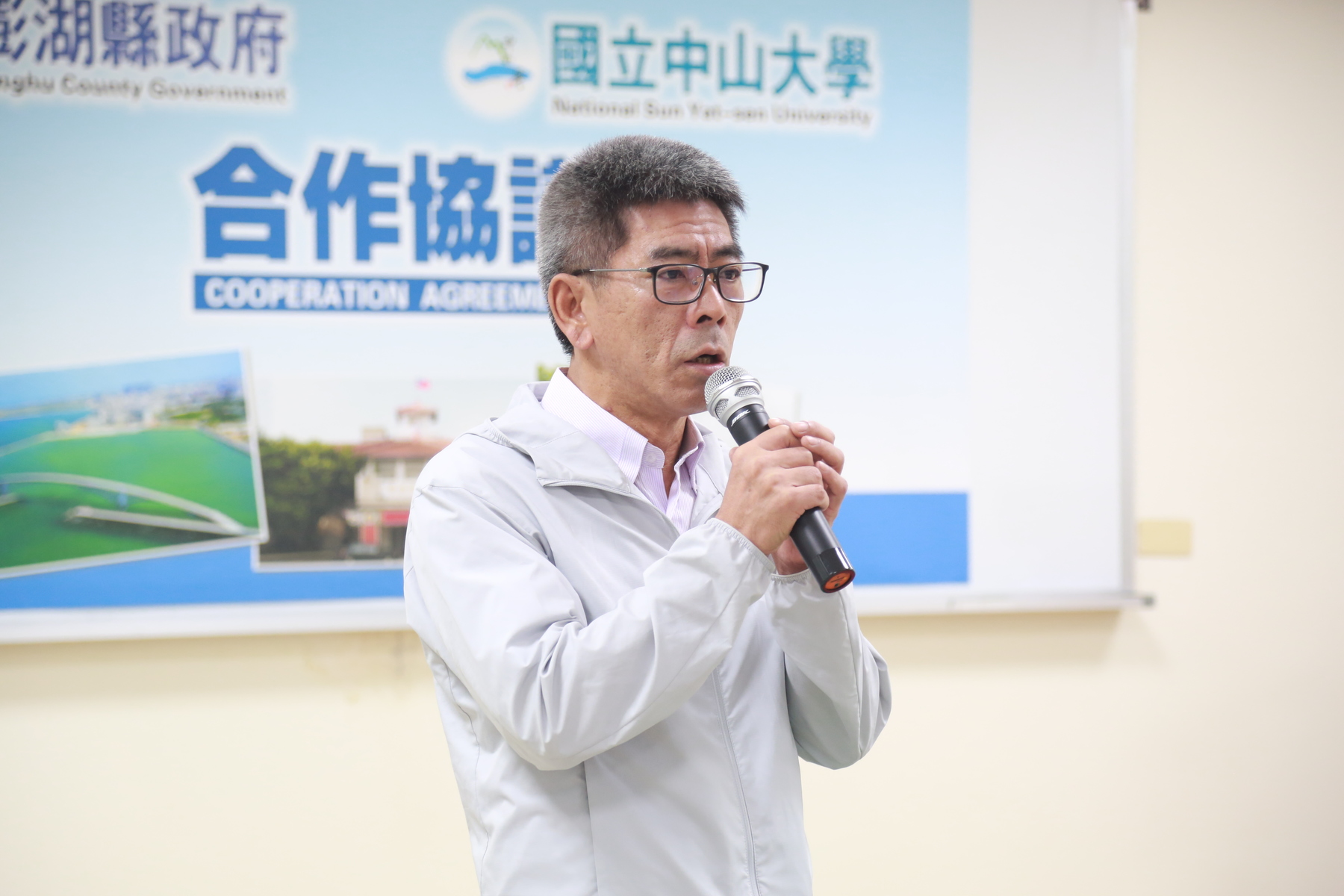
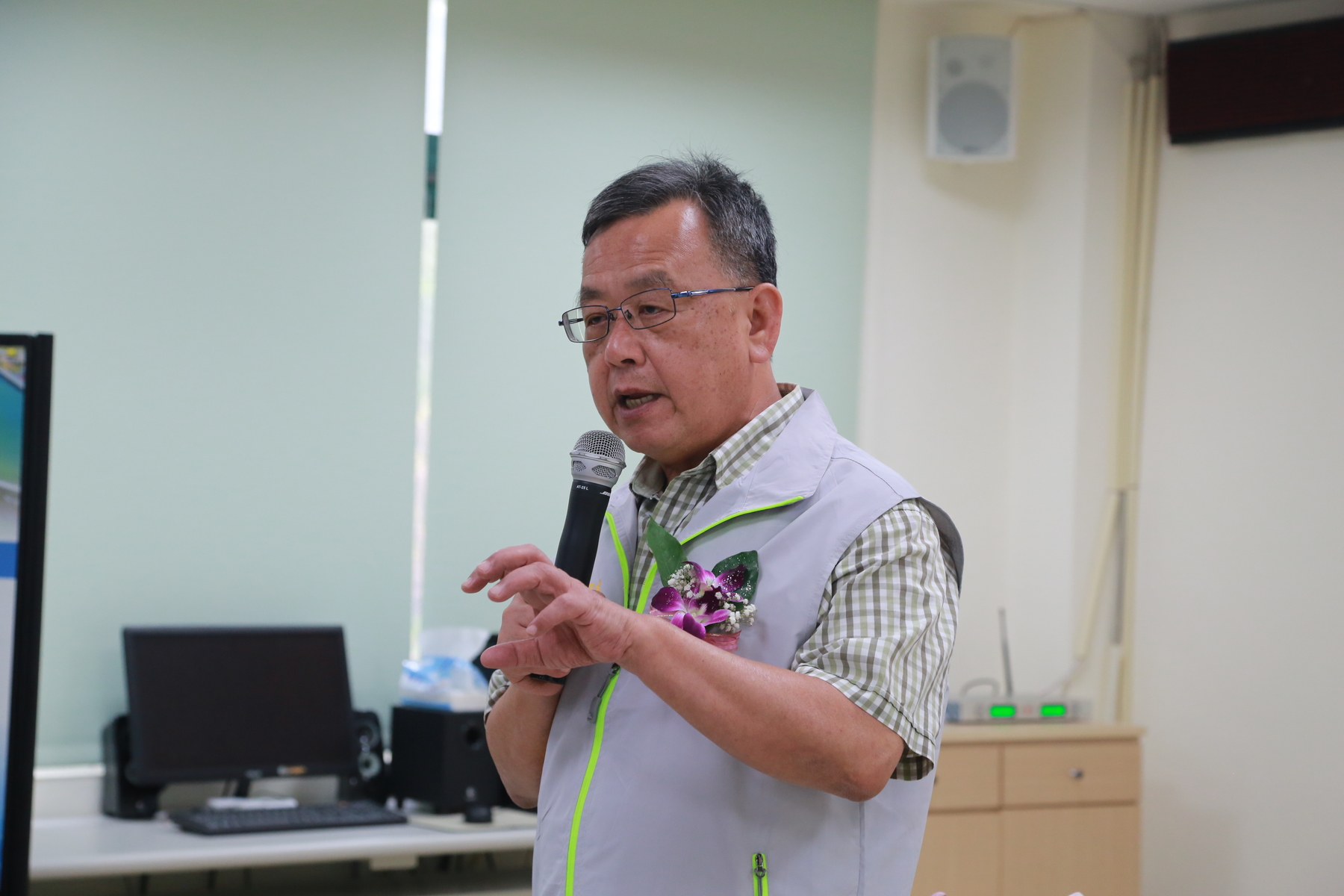
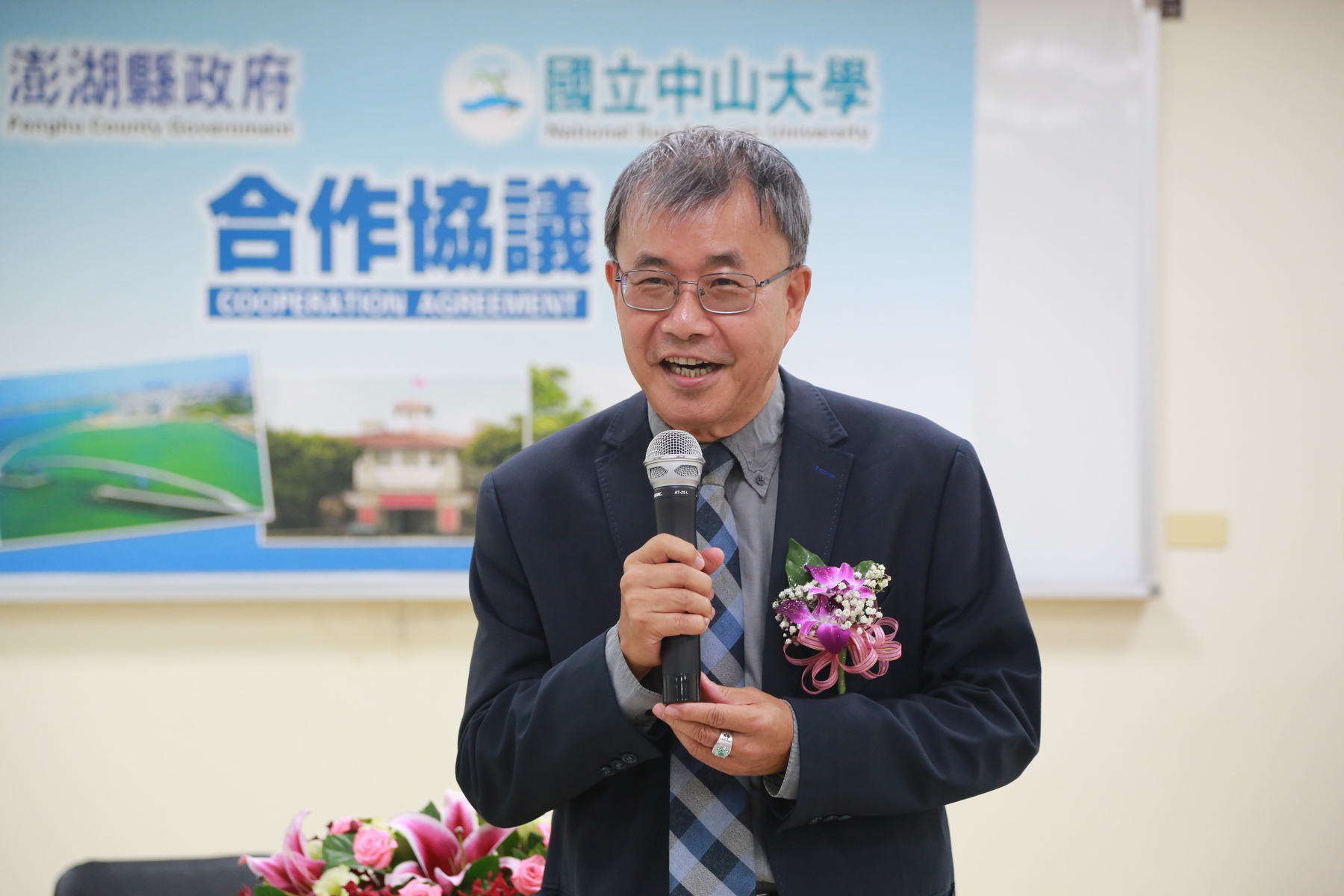
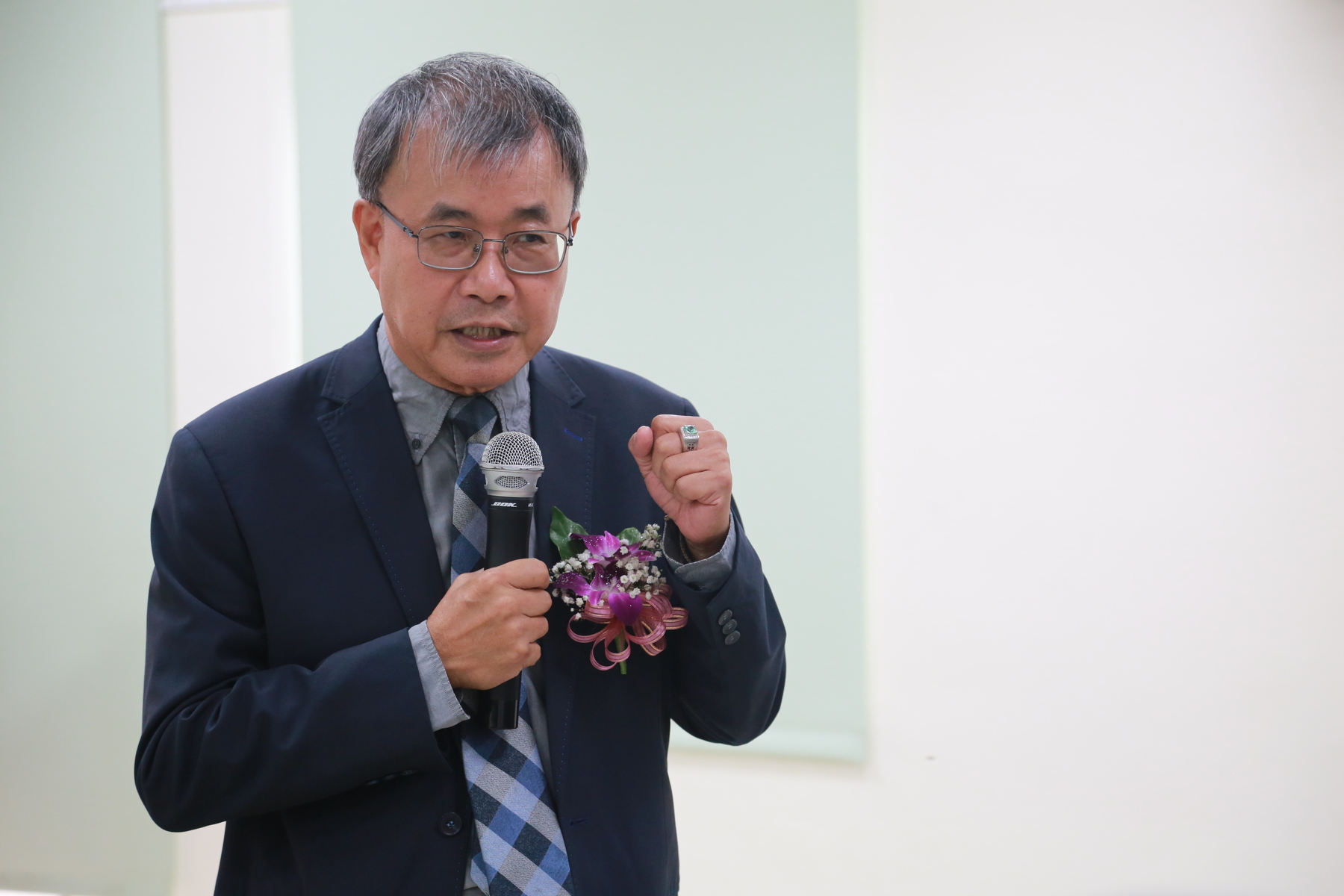
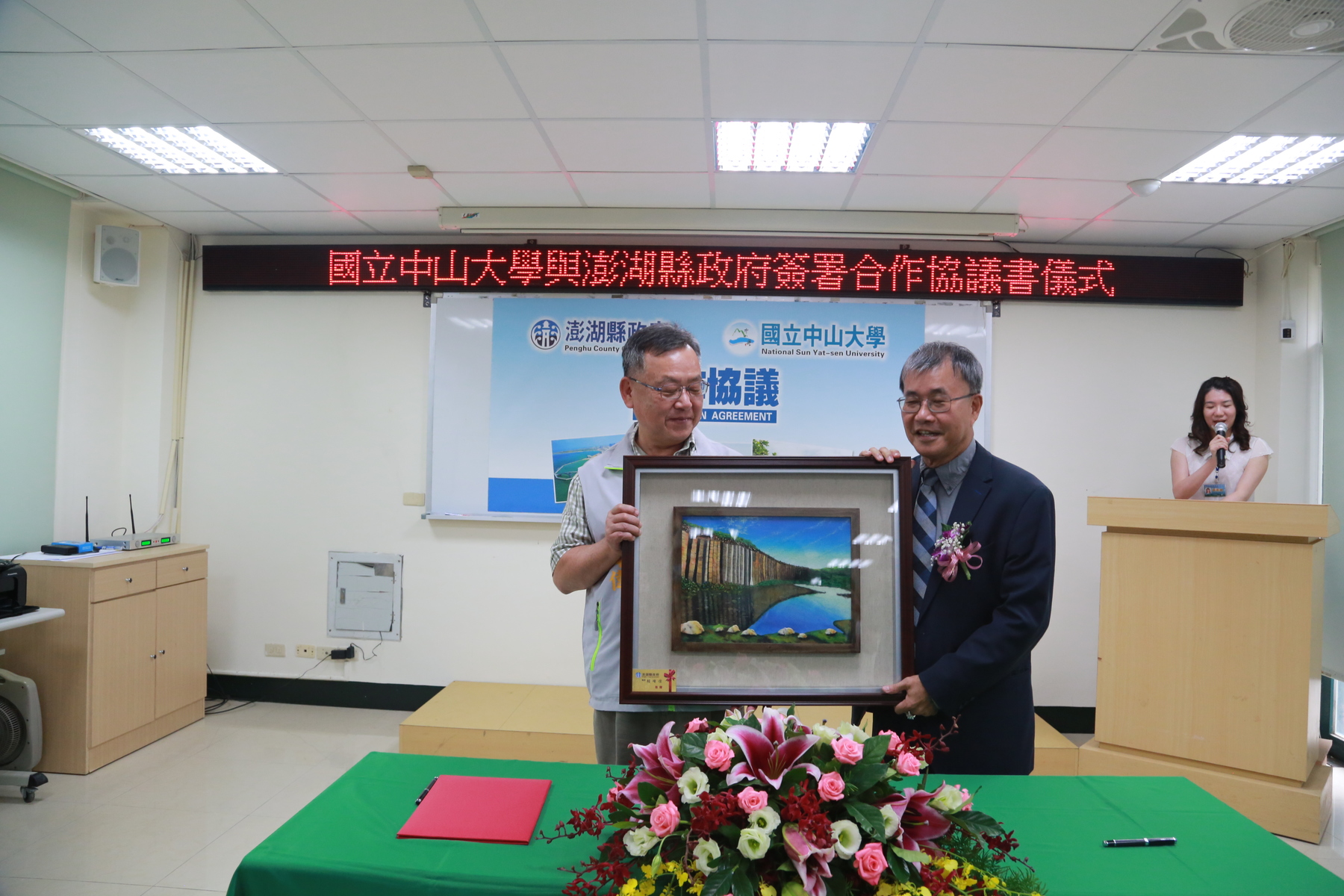
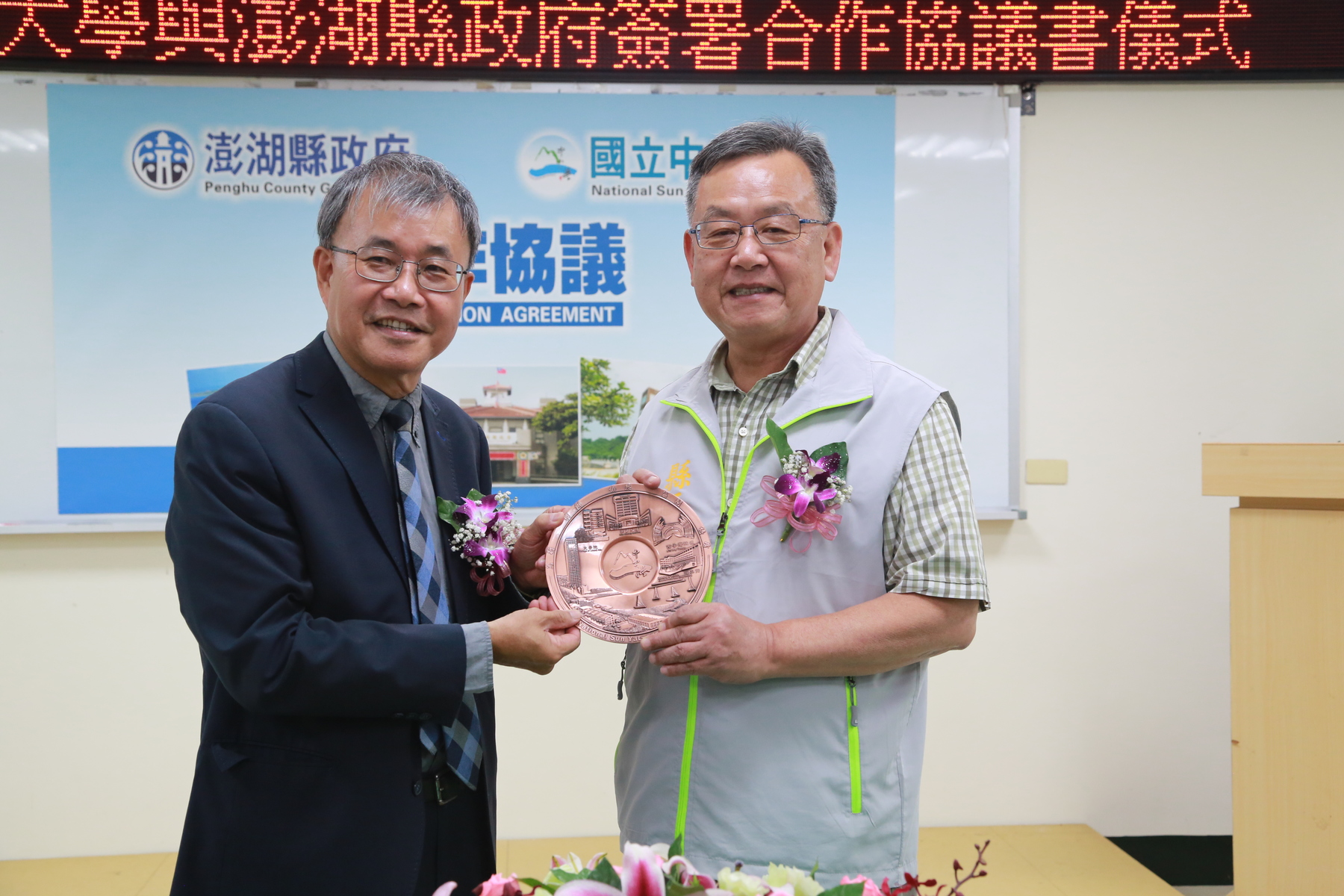
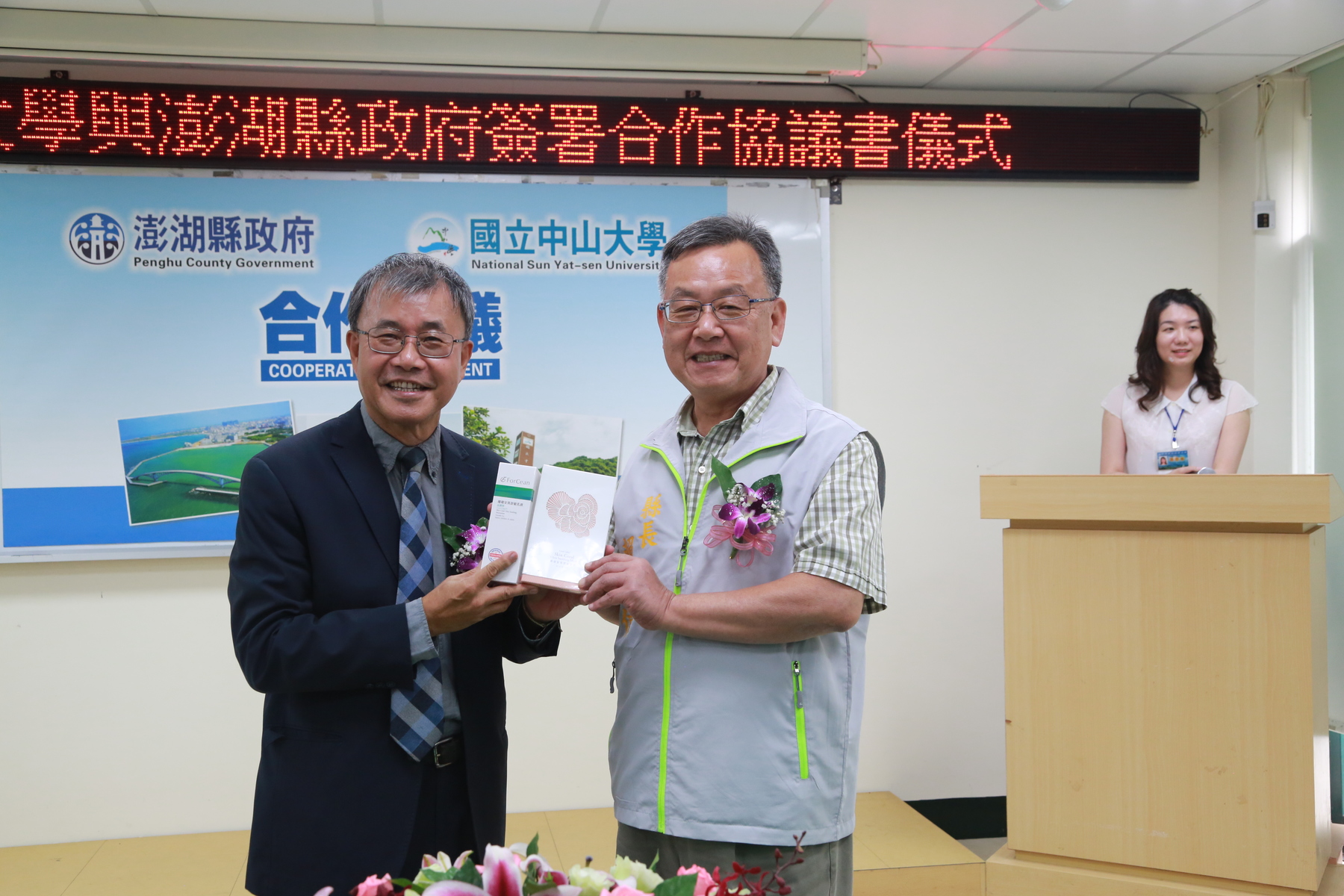
National Sun Yat-sen University applied for the establishment of the College of Medicine and tied a strategic alliance with the Penghu County Government. On October 20th, NSYSU President Ying-Yao Cheng and Penghu County Mayor Feng-Wei Lai signed a collaboration agreement. In the future, NSYSU and Penghu County will join hands to develop new medical technologies, improve the quality of rural healthcare, and provide assistance for rural healthcare professionals through industry-academia cooperation, academic exchange, and professionals’ training.
NSYSU and Penghu County announced the beginning of their collaboration in the training of rural medical professionals. According to the data, the total population of Penghu County is 105 000, and by 2026 it is expected to decrease to 101 000, and even below 100 000 within 10 years. However, the elderly population of Penghu is expected to rise from the present 17 700 to 22 200 within 6 years and make up over 20% of the population.
“The elderly in rural areas need safer and better long-term care and medical resources”, said President Cheng. He was born and raised in Penghu and hopes to give back to his homeland. He mentioned that the NSYSU team established a public-financed healthcare environment model, which includes volunteer service programs in rural areas for public-financed students to assist the community healthcare and serve there after graduation; having gained sufficient clinical experience, the graduates can return to the medical center to pursue a higher degree, also abroad, and then share the results of their medical research with the center and the university and support fellow medical professionals in rural areas. Healthcare in rural areas and outer islands can be sustainable if the healthcare workers are given a future and support.
Mayor Lai said that Penghu County has long been suffering from the insufficiency of resources because of its remoteness and poor transportation. He hopes that the University’s academic experience can help improve the efficiency of the local governance, assist the County Government in enhancing the quality of care for the disadvantaged, public health, public policy, educational resources, tourism promotion, environmental protection, marine culture, industrial development, and ecological sustainability, by putting into play the capacity of the islanders.
University President Ying-Yao Cheng said that the College of Medicine of NSYSU will help provide first-line medical professionals should there be a large-scale epidemic outbreak in the future and the newest medical technologies to improve the quality of healthcare in Penghu County and safeguard citizens’ health. The team of the Department of Electrical Engineering, NSYSU, created the first contactless biological sensing system, which can sense the patient’s breathing, heartbeat, and body temperature remotely for 24 hours a day. This system allows the hospital to test the patient’s condition remotely and reduce the risk of contagion.
Besides, laser mass spectrometry developed by Rapid Screening Research Center for Toxicology and Biomedicine (RSRCTB) at NSYSU can detect toxins within 1 minute by examining the patient’s skin and body fluids. The technology was successfully applied in clinical rapid screening, and in the future, it can be applied in rapid screening of those suspected to have been infected with SARS-CoV-2. Aerosol Science Research Center, the only one of this kind in Asia, has invested in research on preventive medicine related to PM 2.5, aerosol biomedicine, and transmission of SARS-CoV-2 by PM 2.5 and investigated the possible causes and treatments of diseases of the lungs, respiratory tract and cardiovascular diseases. The Center of Crystal Research developed scintillation crystals to be applied as a key element of a positron detector, which will be used to diagnose such biomedical diseases as cancer and Alzheimer's disease. The device can now detect tumors as small as 4 mm (previously it could only detect tumors of the size of 10 mm) to help patients obtain a diagnosis and start treatment as early as possible.
NSYSU and Penghu County announced the beginning of their collaboration in the training of rural medical professionals. According to the data, the total population of Penghu County is 105 000, and by 2026 it is expected to decrease to 101 000, and even below 100 000 within 10 years. However, the elderly population of Penghu is expected to rise from the present 17 700 to 22 200 within 6 years and make up over 20% of the population.
“The elderly in rural areas need safer and better long-term care and medical resources”, said President Cheng. He was born and raised in Penghu and hopes to give back to his homeland. He mentioned that the NSYSU team established a public-financed healthcare environment model, which includes volunteer service programs in rural areas for public-financed students to assist the community healthcare and serve there after graduation; having gained sufficient clinical experience, the graduates can return to the medical center to pursue a higher degree, also abroad, and then share the results of their medical research with the center and the university and support fellow medical professionals in rural areas. Healthcare in rural areas and outer islands can be sustainable if the healthcare workers are given a future and support.
Mayor Lai said that Penghu County has long been suffering from the insufficiency of resources because of its remoteness and poor transportation. He hopes that the University’s academic experience can help improve the efficiency of the local governance, assist the County Government in enhancing the quality of care for the disadvantaged, public health, public policy, educational resources, tourism promotion, environmental protection, marine culture, industrial development, and ecological sustainability, by putting into play the capacity of the islanders.
University President Ying-Yao Cheng said that the College of Medicine of NSYSU will help provide first-line medical professionals should there be a large-scale epidemic outbreak in the future and the newest medical technologies to improve the quality of healthcare in Penghu County and safeguard citizens’ health. The team of the Department of Electrical Engineering, NSYSU, created the first contactless biological sensing system, which can sense the patient’s breathing, heartbeat, and body temperature remotely for 24 hours a day. This system allows the hospital to test the patient’s condition remotely and reduce the risk of contagion.
Besides, laser mass spectrometry developed by Rapid Screening Research Center for Toxicology and Biomedicine (RSRCTB) at NSYSU can detect toxins within 1 minute by examining the patient’s skin and body fluids. The technology was successfully applied in clinical rapid screening, and in the future, it can be applied in rapid screening of those suspected to have been infected with SARS-CoV-2. Aerosol Science Research Center, the only one of this kind in Asia, has invested in research on preventive medicine related to PM 2.5, aerosol biomedicine, and transmission of SARS-CoV-2 by PM 2.5 and investigated the possible causes and treatments of diseases of the lungs, respiratory tract and cardiovascular diseases. The Center of Crystal Research developed scintillation crystals to be applied as a key element of a positron detector, which will be used to diagnose such biomedical diseases as cancer and Alzheimer's disease. The device can now detect tumors as small as 4 mm (previously it could only detect tumors of the size of 10 mm) to help patients obtain a diagnosis and start treatment as early as possible.
Click Num:
Share
